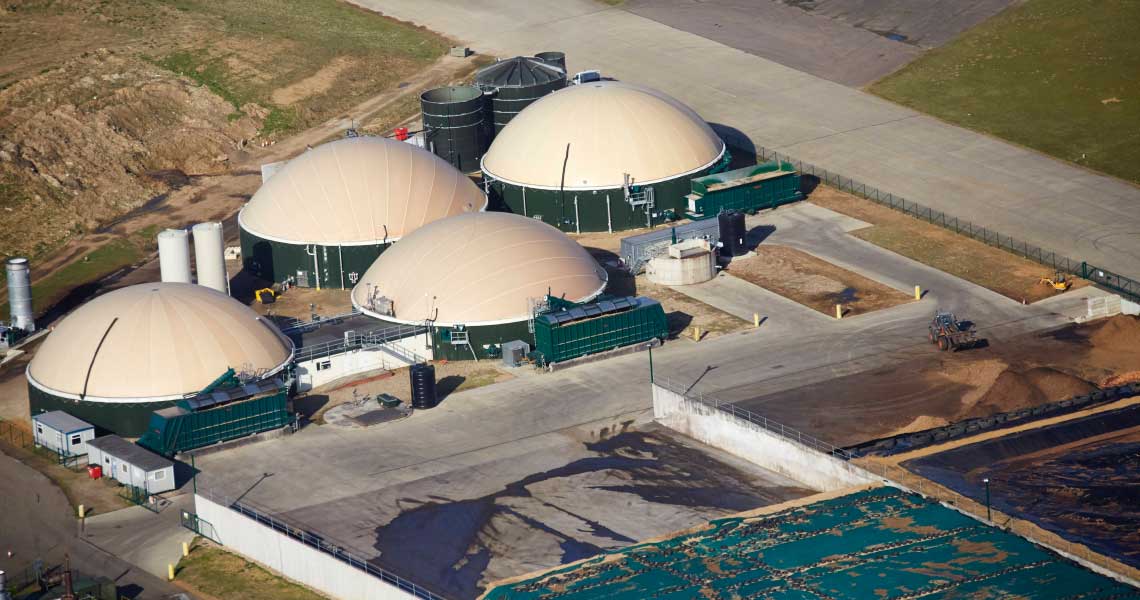HRS pasteurization system tackles plant pathogen risks for farming consortium
Challenges
Using out-grade vegetable products and other feedstocks can increase the risk of plant diseases and weed seeds being spread between farms when re-distributing digestate on the land. One farming consortium comprising six local farms, Agri-Gen in Suffolk, tackled this issue at its 5MW anaerobic digestion plant by installing a 3-Tank Batch Sludge Pasteurizer from HRS to improve the biosecurity of the digestate fertilizer which is then returned to the fields of the six farms.

How an HRS 3-Tank pasteurizing unit works
The digestate is treated between the main digester and storage. The use of a three-tank system means that while one tank is being heated and pasteurised, another is being emptied and the third is being filled. This results in a continuous operation.
Once treated the digestate fertilizer is separated into liquid and solid fractions before being applied to the farms’ fields using a number of techniques, such as injection and spreading of the solid fraction, where it acts as a valuable source of organic nutrients.
Solution
Fed with a mixture of materials, including arable and root crops, such as potatoes, carrots, parsnips and sugar beet sourced from the six farms, the HRS 3-Tank Batch Sludge Pasteurizer:
- Kills potential crop pathogens.
- Reduces the viability of weed seeds and their spread across the land base.
- Provides sufficient heat to pasteurise the maximum volume of digestate produced by the plant without slowing down operation of the overall process.
- Reuses the energy produced by the AD plant for the consortium to dry and cold store crops such as potatoes and onions.
Results
- Processes 70,000 tonnes of feedstock annually.
- Produces approx. 48,000 tonnes of liquid and solid digestate a year.
- Integrated and configured to existing system, heat available and AD plant layout.
Testimonies
“One of the reasons Agri-Gen selected the HRS system is that we configured it to match the amount of heat that they had available from their system in a way that fitted in with their existing layout. Although the AD plant uses 70,000 tonnes of feedstock a year, some of the digestate is recycled when it passes through the presses. Consequently, the pasteuriser is specified to cope with treating 80-85,000 tonnes of digestate each year.”
Matt Hale, HRS International Sales Manager
“The majority of material that feeds our plant is taken from our own land and the digestate goes back to our own land. Adding a pasteurization system was something we always planned to do once our AD business became sustainable. We need to be absolutely certain that we protect our land base, so we do not want to transport crop diseases, pests or weeds across our land base. This is about making sure we don’t have problems.”
Graham Thorne of Agri-Gen